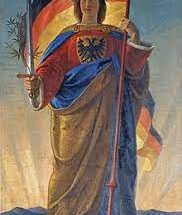Liberalism is a political and moral philosophy rooted in the ideals of liberty and equality. Below, the aspects of liberalism are elaborated in detail, using the provided document as a reference point-
Historical Context and Definition-
- Roots- The term ‘liberalism’ originates from the Latin word “liber,” meaning free, reflecting its core principle of freedom.
- Rise in Europe- Liberalism became prominent in early-nineteenth-century Europe, particularly after the French Revolution, as it advocated for the end of autocracy and clerical privileges.
Key Liberal Principles
- Individual Freedom: Central to liberalism is the belief in individual autonomy, where everyone has the right to live their life as they see fit without infringing on others.
- Equality: Liberals strive for a society where all individuals have equal rights and opportunities, irrespective of their background.
- Democracy: A democratic government, chosen by the people, to serve and represent their interests is a cornerstone of liberal ideology.
- Rule of Law: The establishment of a legal framework that is applied equally to all, including those in power, is essential for a liberal society.
- Economic Freedom: While varying within the liberal spectrum, there’s a general agreement on the need for a market economy, albeit with some degree of government intervention to ensure fairness and protect rights.
Political Sphere-
- Government by Consent- Liberals emphasise a government that operates with the consent of the governed, favouring representative government and constitutions.
- End of Autocracy- Liberalism historically advocated for the abolition of absolute monarchies and the establishment of constitutional governments.
- Limited Suffrage- Initially, liberalism did not equate to universal suffrage. Property-owning men primarily held political rights, excluding women and non-propertied men.
- Equality Before the Law- Liberals stress that all individuals should be equal before the law, though this did not initially translate into equal political rights for all.
- Nationalism Connection- In many regions, liberalism intertwined with nationalism, particularly in the context of revolutions and the push for national unification.
Also Check – European Liberalism in the Nineteenth Century
Economic Sphere-
- Free Markets- Economic liberalism advocates for the freedom of markets and the removal of state-imposed restrictions on trade.
- Opposition to Tariffs- Liberals often fought against tariff barriers that hindered the free movement of goods, as seen in the German Zollverein, which eliminated many internal tariffs.
- Promotion of Capital Movement- Liberalism supports the unhindered movement of capital and goods, aiming to create a unified economic territory.
- Private Property- The inviolability of private property is a key tenet, with liberals arguing for minimal state interference in property rights.
Social and Cultural Aspects-
- Individualism- Places the individual at the centre of political philosophy, valuing individual freedom and autonomy.
- Education and Enlightenment- Emphasises the role of education in fostering an informed citizenry capable of participating in democratic governance.
- Secularism- Often advocates for the separation of church and state to ensure religious freedoms and to prevent religious institutions from interfering in governmental affairs.
Liberal Nationalism
- National Unity- In the 19th century, liberalism was closely allied with nationalism, particularly in the context of national unification movements across Europe.
- Self-Determination- Supported the idea that nations should be free to govern themselves without external interference, often leading to movements for national independence or unification.
- Cultural Renaissance- Nationalist movements often accompanied a revival in national culture, language, and history, which were seen as integral to the nation’s identity.
Challenges and Criticisms
- Limited Suffrage- Initially, liberalism did not extend political rights to all citizens, particularly excluding women and non-property-owning men.
- Economic Inequality- While advocating for free markets, liberalism has been critiqued for not adequately addressing economic inequalities that can arise in capitalist systems.
- Imperialism and Colonialism- Some liberal states engaged in imperial and colonial endeavours, contradicting the liberal principles of self-determination and equality.
Also Check – The Role of Women in Nationalist Struggles – Short note
Also Check – The Frankfurt Parliament
Also Check – The Congress of Vienna – 1815
Also Check – Romanticism- Class 10 – Chapter- The Rise of Nationalism in Europe
Also Check – How was the history of nationalism in Britain unlike the rest of Europe?
Also Check – Giuseppe Mazzini – Italian Revolutionary thinker
Also Check – Giuseppe Garibaldi- Italian freedom fighter
Also Check – Count Camillo de Cavour
Also Check – The Rise of Nationalism in Europe- 39 Mcqs
Also Check – The Rise of Nationalism in Europe – Class 10 – Notes
Also Check – Otto von Bismarck- Architect of German Unification
Also Check – Briefly trace the process of German unification
Also Check – Napoleon and the Napoleonic Code- Impact on European Societies and Legal Systems
Also Check – Why did Nationalist Tensions Emerge in the Balkans
